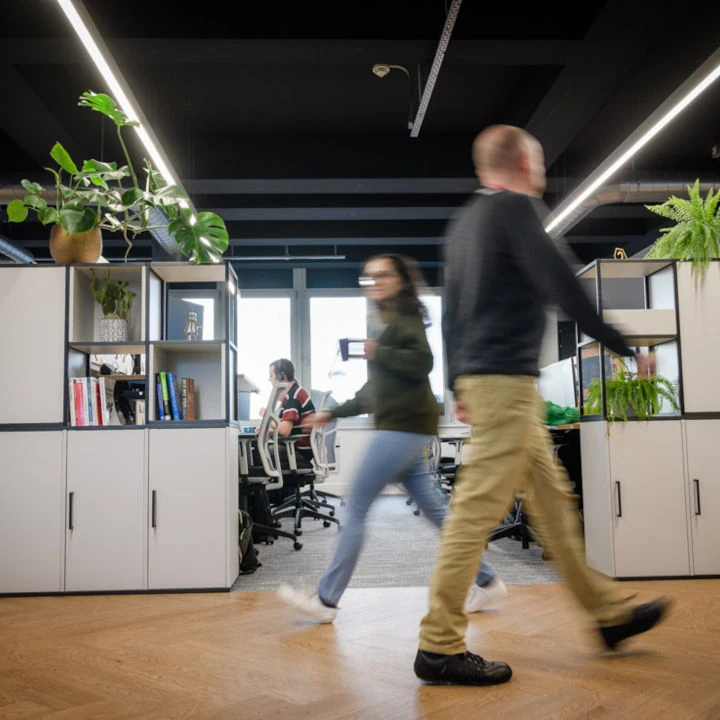When it comes to navigating the current COVID-19 crisis, we at Oakland are no different to our clients. We’re all working our way through a situation that we never fully prepared for.
Even with the most comprehensive business continuity plans in place, it would have been near-impossible to predict the true impact of this global pandemic; one that has effectively shut down the economy and is likely to impact the way we work forever.
It can be difficult to see the wood for the trees.
So, building on what we ourselves are going through, together with what we’re learning from working with our clients, we’ve identified four phases that businesses will experience and the questions and challenges that each throws up.
Phase 1: The crisis response
This is the first stage you encounter as your business world seemingly changes overnight. Maybe your core market has dramatically reduced or perhaps you experienced increased demand. One client in the B2C market saw sales drop 90% in the last two weeks of March. In April sales were 60% below expectation, and in May 50% below target. Whatever the trend, the challenge is always the same – how do you respond?
The strategies or plans you had in place may have been sound before the crisis, but require a speedy re-assessment given that every dimension of PESTLE / SWOT has changed. All businesses have had to react quickly to:
- Get to grips with the government support structures, such as the furlough scheme
- Adapt quickly to enable your people to work remotely on an extended basis
- Get into the mindset of making fast changes to the ways you deliver for customers, without the time to engage the usual checks and balances
- Establish what you do that you can no longer afford to deliver, and identify what new practices have now become business critical
- Explore new offerings and additional income stream
Phase 2: Managing during the pandemic
This is where many businesses currently find themselves. While still managing a quickly evolving situation, they are working out how to operate successfully with a hastily constructed interim operating model, and wondering how to use these unique circumstances to drive the business forward. Organisations of all shapes and sizes are having to:
Firm up the interim ways of working, knowing that we may need to operate this way for many months or beyond. This is not a quick fix, so it needs careful consideration. One of our clients, a government regulator, is looking beyond the short-term. They’re using the pandemic to trial completely novel ways of delivering. The crisis has provided the opportunity for their people and customers to think laterally and embrace the idea of testing – and failing – fast, without the fear of failure.
Fix any interim ways of working that are not delivering.
Re-draw budgets for the duration of the pandemic.
- Accelerate implementation of now business critical projects or programmes. We’ve seen organisations delivering 18 month IT programmes in just six weeks, with the HMRC implementing furlough payments in 6-8 weeks when it would normally take two years. While this requires you to challenge underlying assumptions around the speed of change, it’s unsustainable to see this as the norm. This approach is necessary, but may leave technical debt to deal with, processes not fully embedded, governance bypassed and potentially cause employee burn-out
- Make decisions about what to do, when, and respond to progressive government guidance. Perhaps change emphasis on certain parts of operations (e.g. ramping up staff wellbeing programmes to help people through this period, or if sales cycles are long, focus on generating leads to mitigate an empty pipeline down the road)
- Game plan different ways to transition through the phases of the pandemic. Prepare now for the future by identifying the things to focus on and lay the groundwork for tomorrow
Phase 3: Recovery
This is when the game planning starts to become a reality:
Bring staff back from furlough on a measured basis. One of our clients has put in place a new detailed analysis of the business break-even points. This provides a clear understanding of the impact of changes to government support, and what conditions are right to ramp the business back up in a way that balances the risks with mitigating any losses incurred.
- Re-build supply chains, both into the business and out of it
- Steady the business as things get back on track and be prepared to adapt to a changing market
- Re-start projects that have been put on hold
- Re-invigorate any business governance processes that were bypassed during the crisis
- More than ever, look to transform processes, systems, technology and communications that have a direct financial impact as a way out of this crisis. The role of the Operational Excellence and Business Transformation community is vital in helping make this happen
Phase 4: Future Business as Usual
All the insights you’ve gathered up until this point must now go into building a stronger business for the future.
- You’ll have tested new ways of working. Now is the time to formalise and strengthen those that performed well and stop those that didn’t
- Those new disciplines that have emerged and improved business operations need to become THE ways of working. For example, at Oakland, we’ve increased the frequency of our Operations meetings to match the quicker cadence of decision making required, focussing them on the essential business decisions and partially replacing the more informal ‘coffee conversations’
- The behaviours and expectations of employees may have changed permanently with respect to working remotely, or having more flexible hours. Try to get ahead of these changes to continue to build a stronger business
- Review your crisis response. Take the lessons learned, update both your crisis response and business continuity plans to keep the lessons alive for any future crisis
- The mindset to approaching and adapting to change over the coming months is crucial, especially as we’re likely to face continued and constant upheaval. Throughout all these changes, the Operational Excellence and Business Transformation community play a vital role in promoting the right behaviours and supporting you to make the right decisions and take the right actions quickly.
Simon Vear is a Managing Consultant at The Oakland Group


